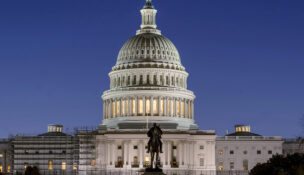House, Senate committees approve budget
Howard Fischer, Capitol Media Services//May 22, 2019//[read_meter]
House, Senate committees approve budget
Howard Fischer, Capitol Media Services//May 22, 2019//[read_meter]
The $11.8 billion state budget cleared its first hurdles Wednesday as the package of spending and tax cuts was approved by a pair of legislative panels. The 7-4 party-line vote...
No tags for this post.

















